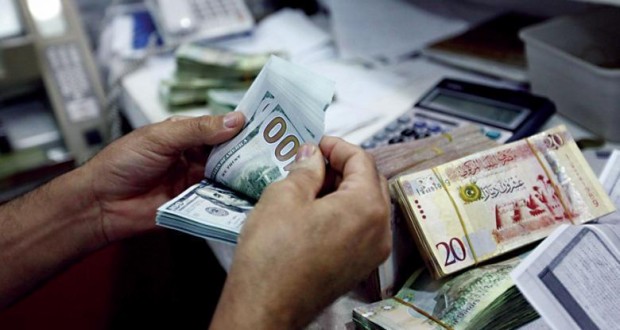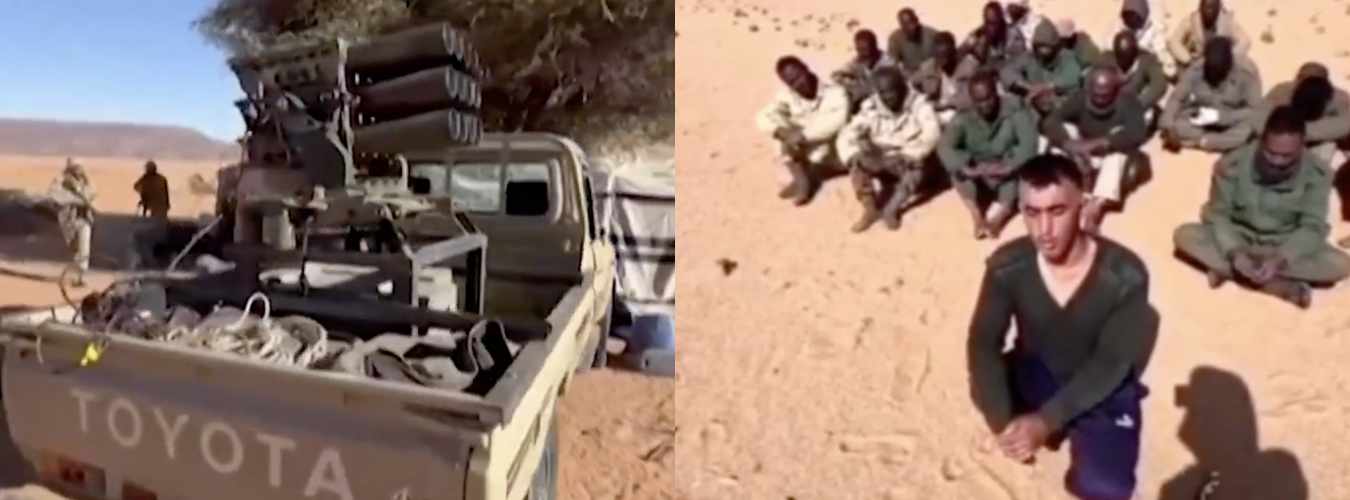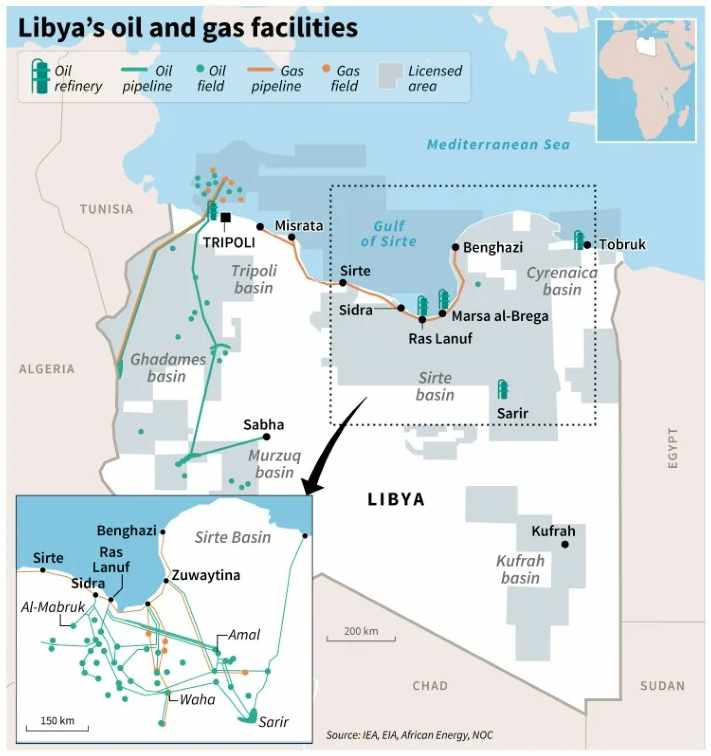
Libya is suffering from an acute liquidity crisis, with long queues outside of banks now a near daily occurrence, as people try desperately to get their hands on cash.
Lack of liquidity has dogged Libya for many years now and has peaked at various points over the past decade. However, the situation has recently become particularly severe. Libyans are reduced to queuing outside of banks for hours, sometimes from dawn, in order to get their money, only to be told later in the day that the bank has run out of cash. They also bemoan the time spent moving from one ATM to another in a frantic and often unsuccessful hunt for cash.
A multitude of causes
There are many reasons behind this liquidity crisis, including: years of disruptions to oil revenues; the ongoing political division between the eastern and western authorities; financial mismanagement; and a general mistrust in the banking system.
The latter is such that many Libyans still prefer to use cash rather than leave their money in the bank. Most like to withdraw their salaries once they are released despite the withdrawal limits imposed on transactions. This hoarding of cash at home results in money rarely being injected back into the banks, placing huge pressures on the financial system and contributing to the liquidity problems.
Although there have been notable efforts to reduce this cash reliance by switching to electronic banking over the past couple of years, there is still some way to go. In January 2025, Misbah al-Akkari, the former chairman of the state-owned Jumhouria Bank and National Commercial Bank revealed that in 2024, Libya had 124,881 electronic points of sale, but that 200,000-250,000 such points of sale were needed to meet market requirements.
In an effort to encourage electronic banking, the GNS issued a statement in October demanding the immediate activation of Decision 135 of 2025, which regulates electronic payments. This applies penalties against all businesses, service providers and professionals who fail to comply with the mandatory adoption of electronic payment systems. These penalties include the closure of shops and businesses and the withdrawal of their operating licences. Hammad called on his government’s Interior Ministry, the Municipal Guard and the CBL, as well as judicial and regulatory authorities to work together to enforce the decision across the whole of the country.
Yet despite these entreaties, many Libyans still feel more secure using cash and it is clearly going to take a while before the country is fully ready to employ electronic payments.
Including the parallel currency market
The liquidity crisis is also affected by Libyans’ ongoing reliance on the parallel currency market, which results in large sums of cash circulating outside of the formal banking sector.
The authorities in Tripoli tried to tackle this parallel market in early October by closing down the informal currency exchange market in Souq al-Mushir in Tripoli’s old city. This is not the first time the authorities have tried to shut it down: they have tried on repeated occasions over recent years to clamp down on the exchange. These previous attempts have proved unsuccessful and there is little reason to believe that this latest effort will be any different. There are already reports that illegal currency traders are up and running in the area again.
However, the Central Bank of Libya (CBL) is trying a new approach and recently authorised more than 400 licenced foreign exchange bureaux across the country. These offices will operate under strict oversight from inspection teams and will sell foreign currency at a 7% margin above the official exchange rate.
Meanwhile Hammad also vowed to clamp down on illegal currency exchange, calling on security agencies to crackdown on informal foreign exchange offices.
While these security measures may go some way to undermine the parallel market, they will do little to actually eliminate it or to solve the liquidity crisis.
CBL discovers forged banknotes
In addition, in June 2025, the CBL began withdrawing LD47 billion (US$8.65 billion) in bank notes from circulation. This withdrawal, which was of certain issues of LD1, LD5 and LD20 denomination notes, was completed on 30 September 2025.
The CBL disclosed that some LD6.5 billion (US$1.19 billion) of the LD20 notes were issued illegally in the east and exceeded the officially authorised amount that the bank was permitted to print. They were issued by Ali al-Hibri, when he was the governor of the parallel eastern CBL at the time when the central bank was split into two rival bodies. They were printed in Russia and bear al-Hibri’s signature. In addition, the CBL identified a further LD3.5 billion (US$642 million) of LD50 notes that were printed in Russia. It is therefore dealing with unregistered currency totalling some LD10 billion (US$1.84 billion).
Pulling such a large sum of notes out of circulation has clearly exacerbated the liquidity crisis even further. The CBL announced on 14 October that it had contracted to print LD60 billion (US$11.0 billion) worth of bank notes to replace those that had been withdrawn in a bid to ensure the availability of cash ‘in a balanced and stable manner.’ These new notes will be delivered in stages, with some LD25 billion (US$4.59 billion) already distributed to commercial banks, a further LD14 billion (US$2.57 billion) due to arrive from overseas before the end of 2025, and with the remaining LD21 billion (US$3.85 billion) to be imported during 2026.
However, this injection of cash into the banking system is unlikely to put an end to the crisis. Many Libyan commentators have said that the sums are insufficient to cover even public sector salaries. This means that liquidity issues will persist, and public anger will only worsen.
This excerpt is taken from Libya Focus, our monthly intelligence report on Libya. Click here to receive a free sample copy.The October 2025 issue of Libya Focus also includes the following:
Politics
- UNSMIL’s Hanna Tetteh briefs the UN Security Council…
- Implications
- HCS objects to Constitutional Court ruling
- Haftar’s sons court the tribes…
Security
- A deal is struck in the capital…
Energy & Economy
- Currency liquidity crisis bites…



